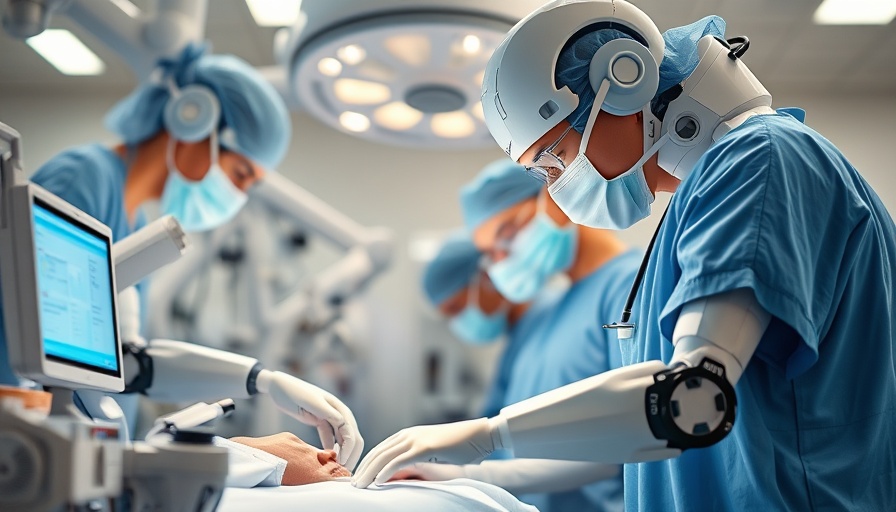
An Exciting Leap in Surgical Technology
The world of medicine is undergoing a transformative change as artificial intelligence (AI) is becoming an integral part of surgical procedures. Recent advancements highlight the innovative use of AI to enhance surgical efficiency and precision, offering exciting possibilities for the future of healthcare. A striking example includes a surgeon in Chile, who, utilizing an AI-guided camera, performed a gallbladder removal surgery independently. This breakthrough signifies a potential shift in surgical methodologies, where AI seamlessly combines with robotic technologies.
How AI is Redefining Surgical Procedures
In a study conducted at Johns Hopkins University, researchers introduced the hierarchical surgical robot transformer (SRT-H), trained to execute parts of surgical operations using AI algorithms. This robot learned through observation and verbal commands—much like mentoring novice surgeons. It demonstrated not only the ability to identify crucial anatomical structures but also to adapt and self-correct throughout the surgical process, achieving remarkable accuracy. As technology continues to evolve, these innovations are expected to become increasingly routine in operating rooms across the globe.
The Market Potential for AI-Driven Surgical Robots
The integration of AI in surgical robotics is not merely a fleeting trend but a significant leap towards a more efficient future. The global market for surgical robots is projected to soar to a staggering $64.4 billion by 2034. As healthcare institutions seek to enhance patient outcomes, the demand for robotic assistance in surgeries is poised to rise, providing an avenue for increased investment and development in this field.
The Role of AI in Minimally Invasive Procedures
Bhushan Jayeshkumar Patel, a technology expert in surgical robotics, emphasizes that AI-powered robotic surgery is elevating minimally invasive procedures to new heights. By leveraging AI's capabilities in data processing and real-time adaptation, robotic-assisted surgeries can deliver unprecedented levels of accuracy, drastically reducing operating times by up to 25%. These advancements not only improve surgical outcomes but also enrich the overall patient experience.
Addressing Concerns and Challenges Ahead
With every technological leap, there are concerns that need addressing. Questions about the cost of these advanced systems, the training required for surgical staff, and the extent of AI's role in decision-making processes arise. While many advocates praise the efficiency and reduced human error AI brings, critics worry it may overshadow the irreplaceable nuances of human judgment and experience in the operating room. Striking the right balance between human oversight and robotic assistance will be essential in the road ahead.
The Wellness of Patients in the Era of AI
In conclusion, as AI continues to develop and refine its role in the healthcare sector, the implications for patient well-being are profound. Not only do these advancements promise shorter recovery times and reduced surgical risks, but they also align with broader wellness goals, emphasizing a more efficient healthcare system. Patients may soon enjoy a future where surgery is not only safer but also complemented by healthy lifestyle choices contributing to their overall wellness.
If you're passionate about the latest developments in health technology and patient care, consider exploring AI's role in shaping future wellness practices today. Stay informed and engaged in the conversation about health and technology, ensuring you are ready to embrace these changes.
 Add Row
Add Row  Add
Add 




Write A Comment